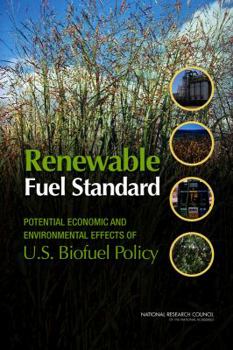Renewable Fuel Standard: Potential Economic and Environmental Effects of U.S. Biofuel Policy
In the United States, we have come to depend on plentiful and inexpensive energy to support our economy and lifestyles. In recent years, many questions have been raised regarding the sustainability of our current pattern of high consumption of nonrenewable energy and its environmental consequences. Further, because the United States imports about 55 percent of the nation's consumption of crude oil, there are additional concerns about the security of supply. Hence, efforts are being made to find alternatives to our current pathway, including greater energy efficiency and use of energy sources that could lower greenhouse gas (GHG) emissions such as nuclear and renewable sources, including solar, wind, geothermal, and biofuels. The United States has a long history with biofuels and the nation is on a course charted to achieve a substantial increase in biofuels. Renewable Fuel Standard evaluates the economic and environmental consequences of increasing biofuels production as a result of Renewable Fuels Standard, as amended by EISA (RFS2). The report describes biofuels produced in 2010 and those projected to be produced and consumed by 2022, reviews model projections and other estimates of the relative impact on the prices of land, and discusses the potential environmental harm and benefits of biofuels production and the barriers to achieving the RFS2 consumption mandate. Policy makers, investors, leaders in the transportation sector, and others with concerns for the environment, economy, and energy security can rely on the recommendations provided in this report.
Format:Paperback
Language:English
ISBN:0309187516
ISBN13:9780309187510
Release Date:January 2012
Publisher:National Academies Press
Length:416 Pages
Weight:2.25 lbs.
Dimensions:1.0" x 7.0" x 9.9"
Related Subjects
Engineering Science Science & Math Science & Scientists Science & Technology TechnologyCustomer Reviews
0 rating





